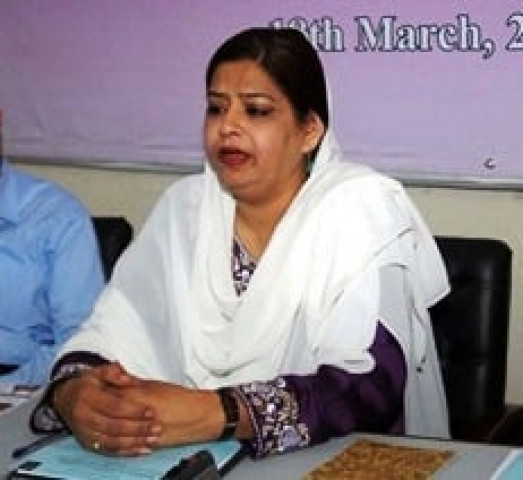Legislation: A woman’s work is never done
Female lawmakers stumped as government departments attempt to water down a draft domestic violence bill .

While Sindh ministers told the assembly on Tuesday that the government was on board to introduce a bill against domestic violence, the lawmakers on the other hand, have had a different story to tell.
On Tuesday, Law Minister Ayaz Soomro said that they “had no objections” while Information Minister Shazia Marri said the chief minister was personally committed to the issue. Marri said the draft bill was being reviewed and the objections raised about a bill on the same issue in the National Assembly were also being considered.
While the bill in the National Assembly has been laughed off as an ‘NGO bill’ set to introduce ‘western concepts’, in Sindh, it is still being held up by the bureaucracy.
After the law ministry mocked several clauses in the proposed Domestic Violence against Women and Children Bill 2012 and asked that the definition of mental torture be changed, the home department has now objected to the punishments listed.
“They want to reduce the punishment from seven years to five, but we won’t accept that,” said Sindh Women Development Minister Tauqeer Fatima Bhutto.
The home department also had reservations over the fines, but these were eventually cleared.
“I believe that they should not waste much time over it, and send it to the chief minister for approval,” Bhutto said.
While she hoped that the bill would be ready by the next assembly session, she fears another battle ahead: resistance from male legislators who have ‘joked about the bill’. Pakistan Peoples Party MPA Humera Alwani says that her male colleagues in the assembly believe this is a ‘westernised’ and ‘modern’ bill.
A senior law department official, who did not want to be named since his own party is supporting the bill, feels that there is no need for the domestic violence bill because it would bring a ‘western culture’ in the Muslim society through its implementation.
“In Pakistan, the law would give freedom to a girl to bring her boyfriend home, and if her parents stop her, she can go to the police station stating that she was subjected to domestic violence. That is what happens in the west,” he gravely intoned.
According to the official, a provision exists in the Pakistan Penal Code for a victim to lodge complaints against criminals, even if it is a family member. But the official claimed that no true Muslim daughter would go to the police station to register an FIR against her fathers and brothers.
“I believe that if the law is implemented a father won’t be able to teach his daughter what is wrong and right,” he said, arguing that legislation on acid crimes should be brought to light, not these ‘minor issues’.
Legislators and activists fault the law department for delaying introducing the bill in the assembly. MPA Alwani openly blames Law Secretary Ghulam Nabi Shah for obstructing the bill. “It has been pending since 2008 because of him. He once said to me that women are supposed to be slaves of men and if such a law is introduced, it would give liberty to the women of his family.”
Aurat Foundation’s Mahnaz Rehman has joined the chorus of law department critics. “In a recent consultation, the additional law secretary kept bringing up irrelevant points to challenge the bill’s clauses.”
Rehman fears the deadlock in the National Assembly over the bill will give more space to its critics. All provinces will have to introduce legislation on domestic violence, which is why Sindh has been working on the bill.
High court advocate Maliha Zia Lari, who has been working for the bill since 2007, says these issues are not a government priority. Lari urged that the chief minister take serious notice of the bill. “We are keeping our fingers crossed that it presented in the next session of the Sindh Assembly and accepted by all.”
Published in The Express Tribune, April 25th, 2012.



















COMMENTS
Comments are moderated and generally will be posted if they are on-topic and not abusive.
For more information, please see our Comments FAQ